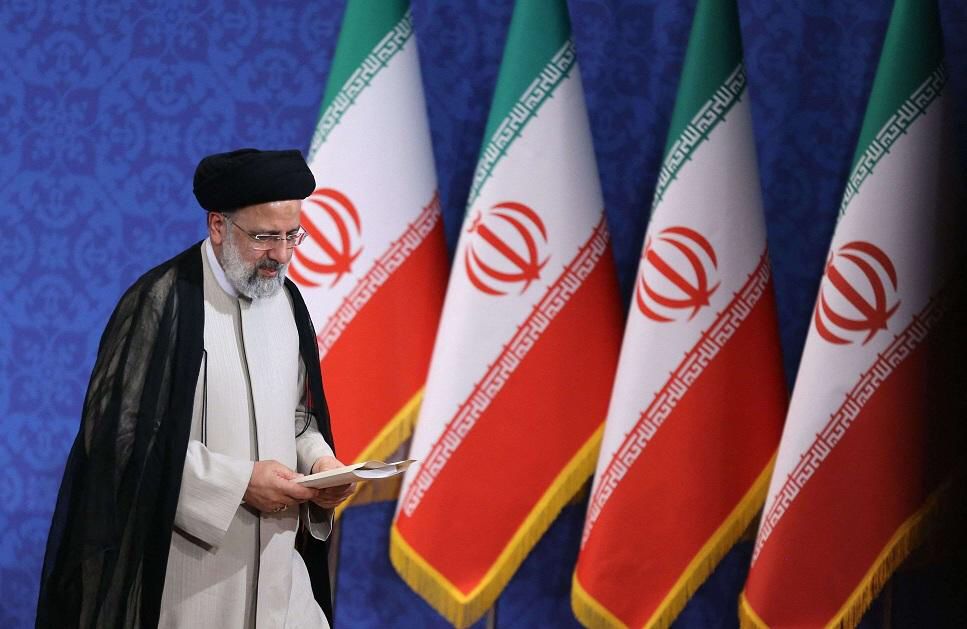Iran thus far has refused to include issues other than the nuclear program in the Vienna negotiations, despite calls from several global powers to include Iran’s regional role and its ballistic missile program, which are perceived as intertwine with the nuclear issue. Iran’s insistence on negotiating only on its nuclear program has the potential to hinder the progress of the Vienna negotiations, even if a deal is reached to reinstate the agreement for the near future. However, producing a temporary settlement on the nuclear program would not enhance stability in the region, in view of continued escalation on other issues, especially Iran’s support for militias in the region’s crisis zones.
Iran’s Foreign Ministry spokesperson Saeed Khatibzadeh announced on September 21st that the Vienna negotiations would be resumed in the coming few weeks, after a 3-month hiatus since the end of the sixth round last June. Although this announcement may indicate the willingness of the new government of Ebrahim Al Raisi to reach a settlement on the nuclear program, it does not negate the fact that there are disagreements and obstacles that could reduce the importance of any outcome from these negotiations.
These obstacles are related primarily to Iran’s refusal to expand the scope of the Vienna negotiations to include its interventions in the Arab region as well as its ballistic missile program. The newly elected president affirmed more than once that these negotiations will only be about Iran’s nuclear program, and that other issues remain, in Iran’s view, beyond the scope of negotiation.
Reasons Behind Iran’s Refusal
Iran’s insistence on limiting the scope of negotiations, refusing to discuss its interventions in the Arab region can be explained by a number of factors, including:
- Contentious relations with adversaries: Iran view its ability to interfere with the domestic affairs of various Arab countries as one of its most important tools in managing tensions with global and regional adversaries. It is noteworthy that Iran expects these tensions or conflicts to continue whether a deal is or is not reached in Vienna.
Based on such a perspective, Iran will continue to refuse to negotiate regarding its regional interventions, even if this leads to the failure of the entire negotiations process. It is unwilling to make any compromises on this issue which is of special importance. This importance was made evident by Iran’s response to the drone strike that killed the former head of the Quds Brigades Qassim Suleimani. Iran responded by launching missile strikes on two Iraqi bases housing US forces, a mere 5 days after the American drone strike. Although these attacks did not result in any US casualties, through them Iran sent a very clear message that it has the capabilities to target US interests and raise the cost of any US attacks on Iran. It is able to do so not only through its ballistic missile capabilities, but also through the actions of its proxies across the region, who also began to launch consecutive attacks against US interests.
- The possibility negotiations will collapse: Although Iran is still holding out for a successful conclusion of the Vienna negotiations and a continuation of the nuclear agreement, it is not seeking an agreement at any cost, but has been indicating it will raise its demands, through official statements and announcing new developments in its nuclear program. It can therefore be argued that Iran may raise the stakes in the coming round of negotiations to a level the Biden Administration would not be able to accept, due to various pressures on it. This means that the collapse of negotiations remains a real possibility and cannot be ruled out, making it risky for Iran to “gamble” on expanding them to include other issues.
- Iran’s regional project: Iran’s interventions in the domestic affairs of Arab countries is a vital pillar of its regional project in which it has invested massive material and human resources. Iran has used its clear influence with many armed militias to extend its influence within Arab countries. Iran views efforts by international powers to negotiate on this issue as a means to get Iran to make concessions in this respect, which is unacceptable on its part.
- The Powerful Influence of the Iranian Revolutionary Guard: “Foreign” operations, or Iran’s regional activities are the province of the Quds Brigade, which is affiliated to the IRG, and the latter will therefore always oppose any negotiations regarding this issue. The IRG views any such negotiations as an attempt to clip its wings, reduce its influence, and restrict its activities outside Iran. This is the reason the IRG opposed negotiations regarding the nuclear issue in the first place, as it may lead to negotiations on other issues it considers vital.
- Khamenei’s Expansionist Vision: Ali Khamenei, the Ayatollah of Iran, has adopted an extremist vision that Iran cannot remain constricted within its borders, and that it is vital to Iran’s interests to spread its soft power throughout the region. These conditions are necessary to maintain the regime in power and support its external project. This indicates that the Ayatollah believes that Iran’s regional presence is an asset that cannot be forfeited, no matter the cost expended in maintaining it.
It worth mentioning that Khamenei insisted when the original agreement was reached on the 14th of July 2015, that it only pertained to Iran’s nuclear program, and did not in any way affect Iran’s regional role. Khamenei’s message to all global and regional powers, four days after the agreement was signed, was that this nuclear agreement would in no way affect Iran’s commitment to its “friends” in the region.
Iran will not change its position on this issue, whatever the outcome of negotiations in Vienna. If an agreement is reached, Iran will insist it is restricted to the nuclear issue and has no impact on its regional role. If an agreement is not reached, Iran is likely to rely on its proxies in exacting a high price for this failure.


